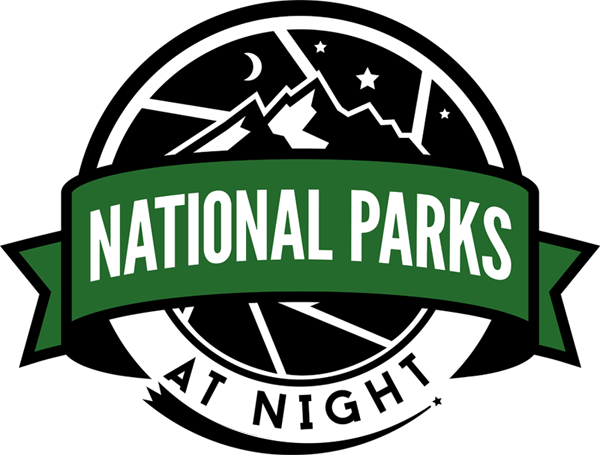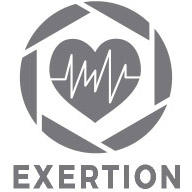Acadia
Photograph rugged Maine coastline, oceanside cliffs, forest lakes and ponds, groves of birch and aspen, carriage roads that weave into the wilderness—all under the Milky Way and moonlight in the only national park in New England.
Workshop Details
October 1-6, 2022 — Completed
This is a 5-night, 6-day workshop. Your adventure begins on the morning of Saturday, October 1, and ends on the afternoon of Thursday, October 6.
$2,095 + applicable taxes. Register below.
Skill level
Open to all who have an understanding of the basic principles of photography and of their cameras.
Group size
14, with 2 instructors — 7:1 ratio
NPS website
Our workshop mission is to explore every U.S. national park. As with all our Passport Series locations, it may be years (if ever) before we return to any specific park. If you have a dream of making epic long exposures at night at Acadia, we hope you join us.
Workshop Leaders
Registration
his event has passed. Thanks for your interest!
| • Deposit of $600 is required to reserve your spot at the workshop. |
| • Balance of $1,495 is due on July 3, 2022. —> Pay balance here. |
| • You may choose the “Pay in Full” ticket if you desire to pay all at once. |
| • Last day for a cancellation request is July 2, 2022 (see cancellation and refund policy). |
| • The workshop fee does not include lodging, food, airfare, Badlands entrance fees, or transportation to TK or to our nightly shoot locations. |
The Acadia Experience
In our first four years we were committed to offering a workshop at every U.S. national park, one at a time, without repeating. However, you kept asking us to return to some. So for the third consecutive year we put a vote out to our alumni to see which park we should go back to. For 2022, they chose Acadia National Park!
It’s an excellent choice. Acadia is a photographer’s playground. Despite being one of the smallest national parks, it’s one of the most diverse for photography. Magnificent coastline, inspiring mountain views, gravel carriage roads, stone bridges, placid ponds and lakes, groves of birch and aspen and more all await our cameras and lenses. Moreover, all of those will be complemented with sunsets, moonsets, dazzling starry skies, Milky Way and more.
This early-autumn workshop will entail five nights of photographing some of the most beautiful scenery on the New England coast. The experience will begin under a first-quarter moon, allowing us to photograph the Milky Way over spots such as Eagle Lake and the Atlantic Ocean, and will culminate under a waxing gibbous moon, perfect for illuminating the landscape and for light painting foreground subjects.
Each night will consist of working in some of Acadia’s best-known and little-known spots, photographing stars and star trails, and light-painting rock formations on the coast and stone bridges on the park’s famed carriage roads. During the day, after a good morning’s sleep, we’ll gather to review images and to engage in classroom discussion and instruction, focusing on night-photography techniques, post-processing tips, photo secrets of Acadia and more.
In addition to the aforementioned locations, potential photography sites for this workshop include Boulder Beach, Sand Beach, Cobblestone Bridge, Hadley Brook Falls, Sieur du Monts, Great Head, Cadillac Mountain, Bass Harbor Head Lighthouse, Jordan Pond, Pretty Marsh, Schoodic Point and Little Moose Island.
What You Should Know
Participants must have at least basic photo skills, know their cameras well, and be comfortable shooting RAW in manual mode with a DSLR or high-end mirrorless camera.
Night photography experience is not necessary, but even folks with extensive experience shooting at night will find this class challenging, stimulating and inspiring. For more advanced night photographers, we can offer a portfolio review and specific challenges and goals, and will offer guidance in the field if you mainly want to concentrate on creating portfolio images or learning more advanced techniques.
If you would like to attend this workshop but are unsure whether you have adequate night photography skills, we can offer pre-workshop tutoring to get you ready for your adventure with us. Alternatively or additionally, a few of us have written books that may be productive pre-workshop reads.
What You Will Learn
We hope to push you to step outside your comfort zone—to test the limits of what you and your camera can do. You’ll go home after the workshop with a solid grasp of night photography in dark and moonlit environments, and a good foundation in light painting techniques.
TOPICS COVERED WILL INCLUDE:
astro-landscape and Milky Way photography
photographing in moonlight
star trails
light painting
PhotoPills
night panoramas
and more …
This workshop will have both field and classroom instruction. We will be in the classroom each day and out in the field at different locations each night. Participants can stay out shooting as long as they, or their camera’s batteries, hold out. While in the field, the instructors will demonstrate their own techniques, and work with participants one-on-one to make sure everyone gets the most out of the workshop. During classroom sessions, there will be presentations by the instructors, but we will focus on developing your images and sharing everyone's work and ideas with each other. Each day will have a review of the previous night’s work.
Our locations have generous room to explore, so everyone will be able to spread out and not get in one another’s way. Each participant will have the opportunity to work one-on-one with Chris and Matt in the field.
We do not tell our attendees what to photograph, and won’t line you up in a row to all shoot the same thing (unless it’s helpful to get some people on track). Instead, we encourage you to use what you have learned to create your own unique images, and to let us guide you through the process should you desire. We do not teach you to do what we do, but rather how to develop your own night vision.
Night Conditions
Logistics & General Info
Travel
You will need a rental car. If you are interested in carpooling or sharing a rental car, let us know and we will try to connect you with another attendee looking for the same. You are responsible for arranging and paying for your own transportation.
Nearby Airports:
Bangor (BGR) — 1 hour from Bar Harbor
Portland (PWM) — 3 hours
You can also fly to Hancock County Airport (BHB), which is a local airport 10 miles north of Bar Harbor. Direct flights are available from Boston, but the airline choices and schedules are limited.
Lodging & Food
The majority of Acadia National Park is on Mount Desert Island, itself a fine photography destination with its old New England architecture, public gardens, secluded bays and coves, and working lobster-boat harbors and fishing villages. The island also offers a selection of services and amenities, including excellent food options at all price points.
We’ll be staying at a hotel in Bar Harbor, with easy access to food, coffee and T-shirts adorned with lobsters. You are not required to stay at the official workshop lodging, though doing so does make it easier to meet with the group each day. Lodging info and group code will be sent after registering. If you are interested in sharing a room, let us know and we will try to connect you with someone like-minded in the group.
We encourage eating two meals per day—a good late breakfast and a great early dinner. When on the night shoots, you may wish to bring snack food or a sandwich and plenty of water.
You are responsible for arranging and paying for your own meals and accommodations.
Weather
Fall temperatures in Acadia can range from the high 60s F in afternoon to the high 30s at night. We’ll probably be a little early for much fall color, though we should see at least a little.
Recommended Attire
Because of the swings in temperature, it’s not uncommon to begin and end a fall day in jeans and a coat while wearing shorts and a T-shirt in the afternoon. Fog and drizzle are possible, so carrying a raincoat (and even rain pants) is prudent. Because of the frequency of working around water, it is also advisable to wear waterproof trail shoes with good support and aggressive tread.
Exertion Level
The exertion level of this workshop is Easy to Moderate. (See more about our classifications.)
We’ll be driving to our shoot locations, and aside from one exception, there will be no “hiking” per say—just short walks to shoot locations from the parking lots. So top-level fitness is not a prerequisite for this workshop, but you should be comfortable walking a bit, as well as carrying your own equipment over uneven ground in the dark.
The aforementioned exception is a steep but short (20-30 minutes) trail to amazing views, and back down in the dark. You are, of course, welcome to shoot a different location that night, and Chris and Matt will have plenty of nearby alternatives for you to choose from.
Considerations
Please read our FAQs section for more information about skill and gear requirements, and other information that pertains to all our workshops.
If you have questions, please contact us—we're happy to talk it over with you.
A Photographer’s Dream ...
“Seriously, yes, we did all that in one day. Acadia is that kind of park. Beauty is everywhere.”
The first time I visited Acadia National Park was in 1997. I was on a weeklong project with another photographer creating autumn scenic images of the Maine coast. Our specific destinations were open to our whims, so we meandered onto pretty much any peninsula and island that serendipity brought us to.
But one destination that was planned ahead was Acadia. We weren’t sure what we’d find (this was before the days of Flickr research and photographers’ travel guides), but we were drawn there nonetheless. Upon driving into the park, we immediately knew it would be the photographic and experiential highlight of our trip.
We explored the shore, driving the ocean road along clifftops and past cobblestone beaches. We drove to the top of Cadillac Mountain and walked its granite summit among spruce and pitch pine. From the heights of the mountainside we surveyed the fall color surrounding Bar Harbor and lacing the Acadia forests below, and we peered over the water at the islands of the surrounding bays and seas. We photographed the waterfront boulders of Jordan Pond, fallen leaves swirling in the gentle currents of Duck Brook, and the rustic spans of the stone bridges on the carriage roads.
It was a busy day. Seriously, yes, we did all that in one day. Acadia is that kind of park. Beauty is everywhere, in various forms, and much of it is relatively easy to reach. The next morning we concluded our Acadia portion of the shoot by hiring a pilot to fly us over the park and the surrounding islets and islands.
In the years since, I've visited and photographed Acadia about ten times, and it's become one of my favorite places in the world. But I'll always remember that first experience, that first day, when I found a love for the East Coast's first national park.



































